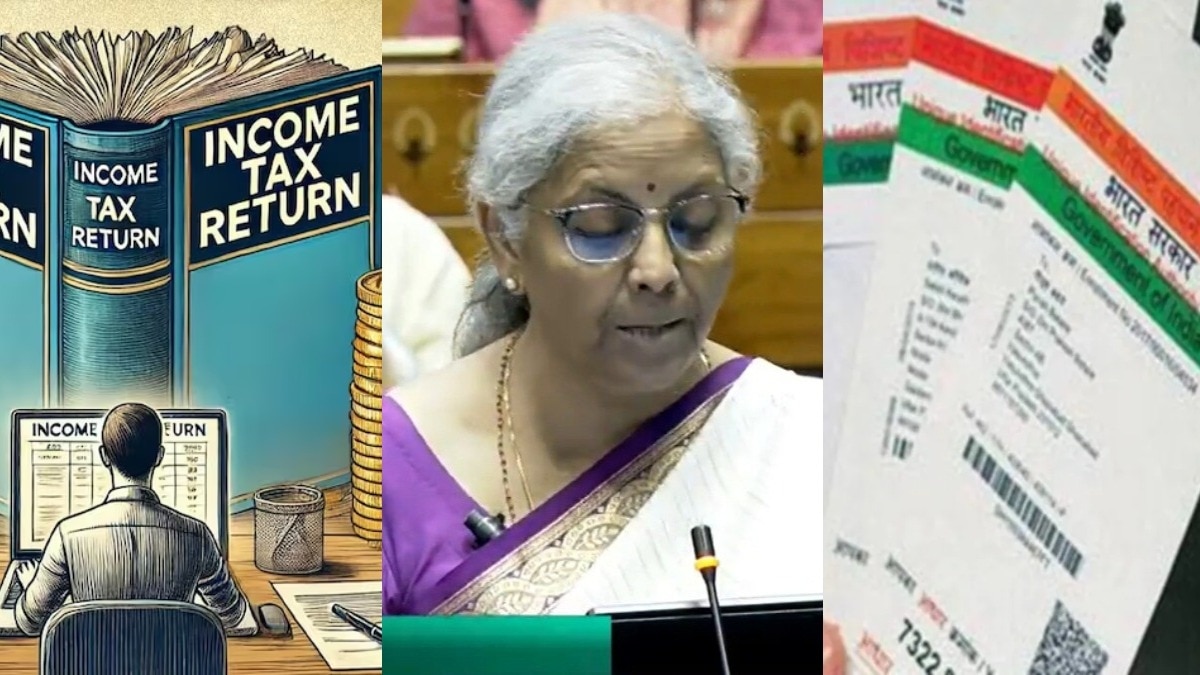Every month there is some change in the rules, in view of which some changes are taking place from the next month also. There are going to be changes in some rules from October, most of which are related to tax. Six major changes are going to happen from October 1, ranging from Aadhaar Card to Income Tax. All these changes were announced by Finance Minister Nirmala Sitharaman in the Union Budget 2024.
In Union Budget 2024, Nirmala Sitharaman had announced some changes regarding income tax. Some of these changes are effective now while there are some changes which are going to be effective from October 1. These changes include Aadhaar card, STT, TDS rate, Direct Tax Vivad Se Vishwas Scheme 2024.
1. Direct Tax Vivad Se Vishwas Scheme
related news
Direct Tax Vivad Se Vishwas Scheme is going to be effective from October 1, 2024. This scheme provides an opportunity to resolve pending tax disputes. It was initially introduced in 2020 to settle pending tax appeals. The Vivad Se Vishwas scheme is related to resolving disputes till July 22, 2024. Under this, those taxpayers come who have disputes related to tax, interest, penalty or fees before the High Courts or the Supreme Court.
The settlement amount given under this scheme depends on the time of payment. Taxpayers who opt for settlement between October 1, 2024, and December 31, 2024, will have to pay the entire disputed tax amount or pay 25% of the disputed interest, penalty or fee. However, individuals who wish to settle after December 31, 2024, will have to pay 110% of the disputed tax amount or 30% of interest, penalty or charges.
2. Aadhaar Card
The provision allowing mentioning of Aadhaar enrollment ID instead of Aadhaar number is proposed to be discontinued in the Union Budget 2024. The aim of this decision is to eliminate misuse and duplication of PAN. From October 1, 2024, individuals will no longer be able to mention their Aadhaar enrollment ID in the application form for PAN allotment and in their income tax returns.
According to the Budget, section 139AA of the Act requires eligible persons to quote Aadhaar number in PAN application form and income tax return with effect from July 1, 2017.
3. Security Transaction Tax (STT)
The Securities Transaction Tax (STT) applicable on futures and options (F&O) trading is set to increase from October 1, 2024. Especially for equity futures and options (F&O), tax rates will increase by 0.02% and 0.1% respectively. Additionally, income from share buyback will now be taxed based on the taxable income of the beneficiaries. Additionally, STT on option sales will increase from 0.0625% of premium to 0.1%.
4. Floating TDS Rates
An important update was made in the Budget 2024 regarding tax deducted at source (TDS), especially related to central and state government bonds, including floating rate bonds. This will be effective from October 1, 2024, under which TDS of 10% will be applicable on the bonds. Moreover, the new TDS regulation covers floating rate savings bonds. If the revenue received within a year is less than Rs 10,000, then TDS will not be deducted. TDS will be deducted only when the income crosses the limit of Rs 10,000.
5. TDS Rates
TDS rates have been reduced for payments under sections 19DA, 194H, 194-IB and 194M. The reduced rates for these streams are now 2% instead of the earlier 5%. Apart from this, the TDS rate for e-commerce operators has been reduced from 1% to 0.1%.
- Section 194DA – Payment for life insurance policy
- Section 194G – Commission on sale of lottery tickets
- Section 194H – Commission or brokerage
- Section 194-IB regarding payment of rent by Hindu Undivided Families (HUF)
- Section 194M in respect of payment of certain sums by nominated persons or HUF
- The provisions under Section 194F on buy-back of mutual fund units or payments related to UTI are expected to be effective from October 1, 2024.
6. Share buyback
A new rule regarding taxation of share buyback will come into effect from October 1. Now shareholders will be responsible to pay tax on buyback income, which will be applicable for taxation of dividends. This change will shift the tax burden from companies to shareholders, which will significantly impact buyback strategies.

